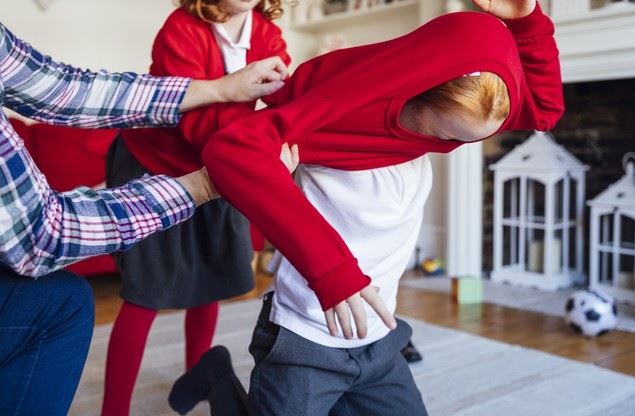In a time of educational fragility, here are new approaches and methods with which to manage the relationship with a child. The novelty in the field of education is called the “Fafo method” where FAFO is the acronym for “Fucking Around and Find Out” that translated into Italian could play how “Test you and find out what consequences have your actions”. The method is completely centered on the autonomy of the child and sees the adult escape from any attempt to manage or guide, convinced that the child himself will deduce from what he lives and acts the best way to be in the world.
We have come out for two decades that enhanced the model of the “gentle parenting” or of a parenting always attentive to the emotional needs of the child, always tuned to his mental states, always available to ask for, verify, explain, welcome and accompany. It has long been thought that education based on gentle parenting was what the child needs most. But it happened that children do not seem to have benefited this super-care and emotional availability of the adult world. Indeed … today many evolutionary age specialists speak of a fragile childhood because they are too protected, too attentive, too accustomed to seeing each other removed from any form of discomfort and frustration by parents unable to let go, to make a child even face the consequences of errors and falls that in life cannot always be prevented or removed. Thus, the parentality of the beginning of the third millennium often defined as “helicopter parenting” or “sweep” now leaves room for an exactly opposite parental model, which is the one proposed by FAFO METHOD.
Here, the parents let the child act and take on the consequences of his decisions. Outside it’s cold is you want to go out with the short -sleeved shirt? You will get sick and you will understand that it would be better to decide otherwise. This is one of the examples that is used to understand the nature of this educational approach, which aims to allow children to learn from experience, thus authorizing the automatic learning that derives from errors and falls. Can we talk about a step forward in educational models? Can we imagine that this approach is the mirror of a new parenting that finally releases from the model of hyperprotection and allows those who grow to escape the trap of anxiety and dependence on adult? I think not. Because also this model, now so talked about and enhanced in the world of social media, seems to be an easy answer to a far more complex question. Parents would often like a recipe with “the magic method” that applied in every situation always gives the desired outcome. But in education this magical method does not exist.
Because being good educators is not simply a matter of strategy or method to be applied, but it is first of all a matter of relationship. The adult must be a relationship expert. He must dose the right distance and the right closeness according to the specific need that a minor has at a certain moment. It is not a simple question of emotional tuning, as required by the “gentle parenting” method or – on the contrary – of distancing as evoked by the Fafo method. The competent educator is sometimes in front of him and sometimes he is behind the child he is taking care of. Sometimes he is next to it and welcomes him lovingly in all his needs, but other times he must contain it and accompany in facing inconvenience or frustrations, aspects that the child does not always know how to manage independently. In education, he has often resorted to the myth of the “competent” child who already has skills and resources to face everything. But the competence of the child is not an innate dimension, but is something that develops in function of the ability of the adult to offer him report and experience to measure the development phase.
I believe that the Fafo method today represents a stimulus for the parents of the third millennium to abandon their “helicopter” or “sweep” version, but does not represent the real solution to the educational emergency so evoked by many parts. Because what is required today to the parent is not the ability to adhere to a method, but the assumption of an educational responsibility that belongs to the dimension of his “adult being”. I write adult with capital A, meaning the adult as a bearer of responsibility and competence. Which the Fafo method may not fully predict, becoming the favorite methodology of distracted adults, absent and often immersed in its own reality, which with the excuse of a method in which the child acts, elaborates and deduces could find an unassailable alibi for their inconsistency.


